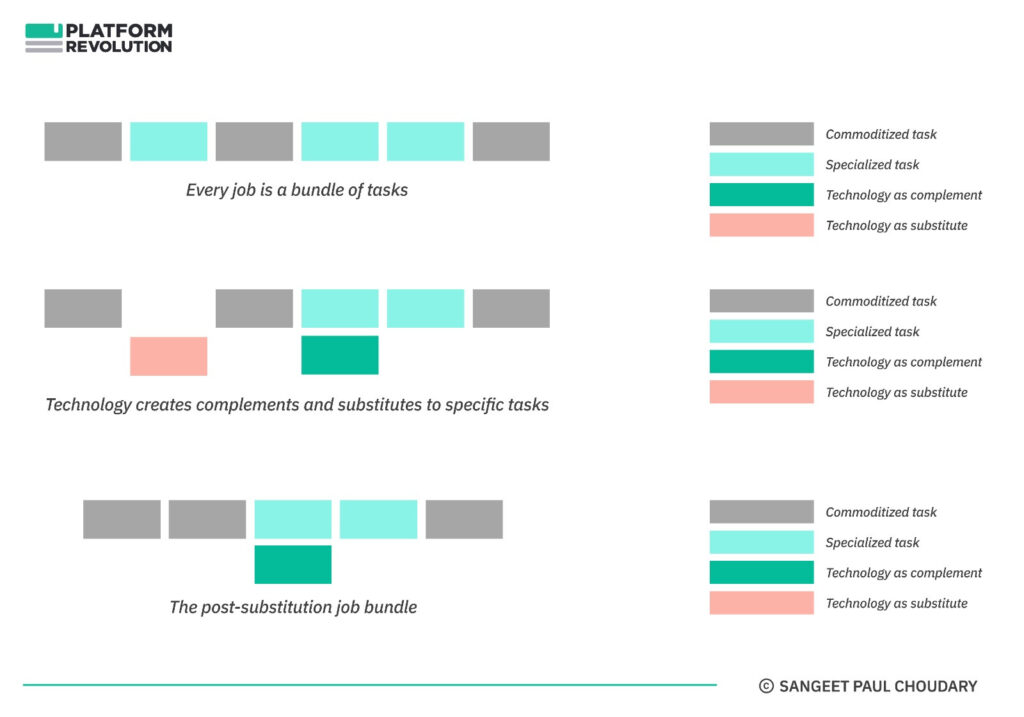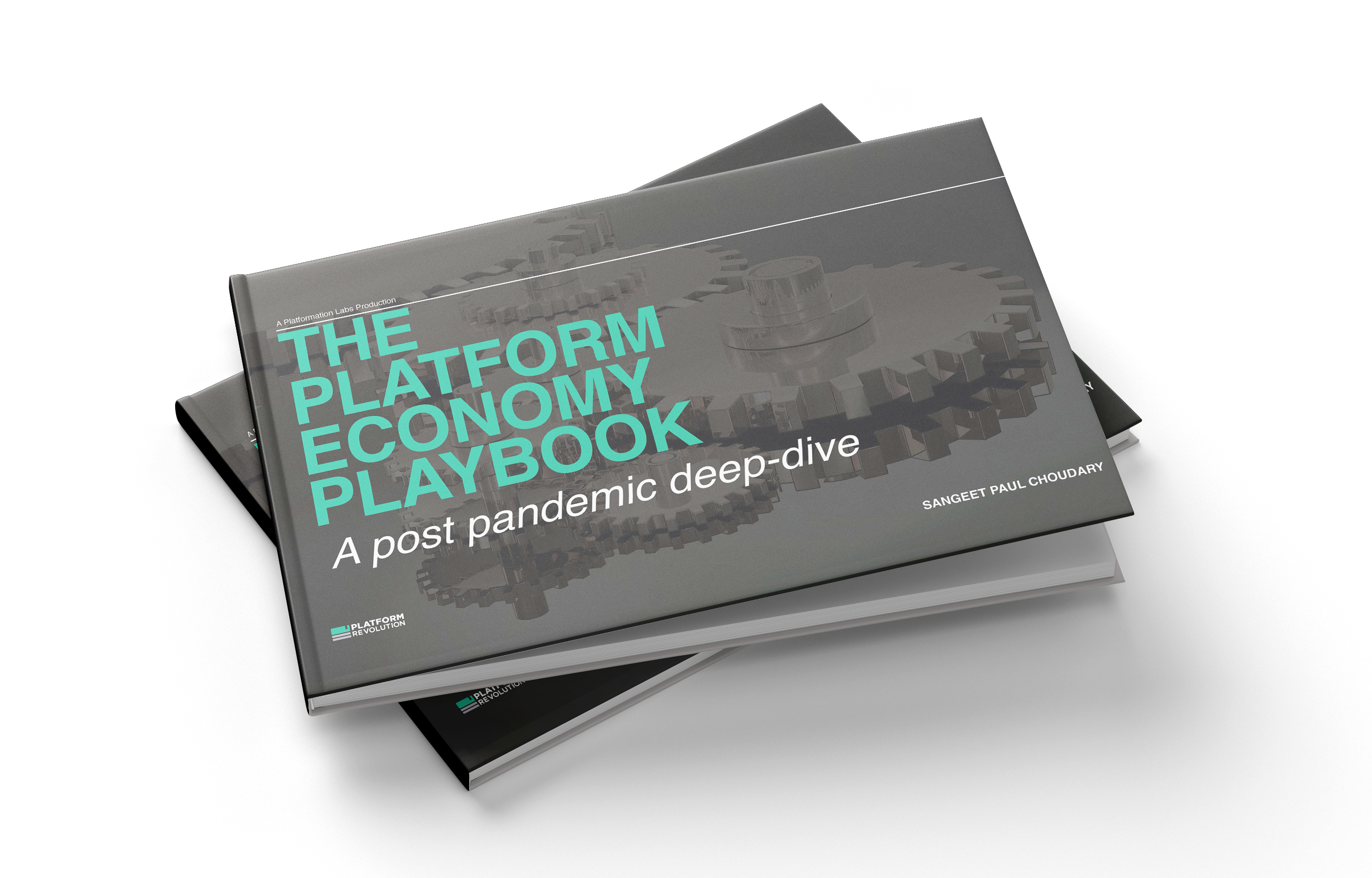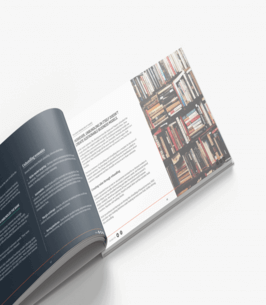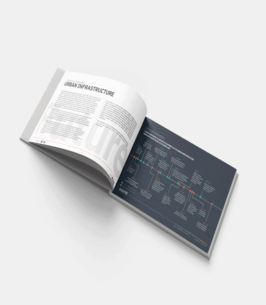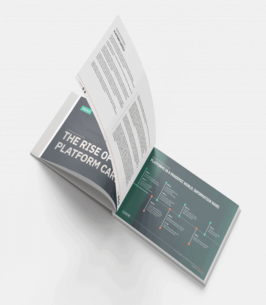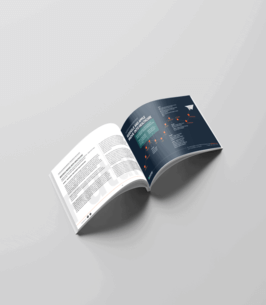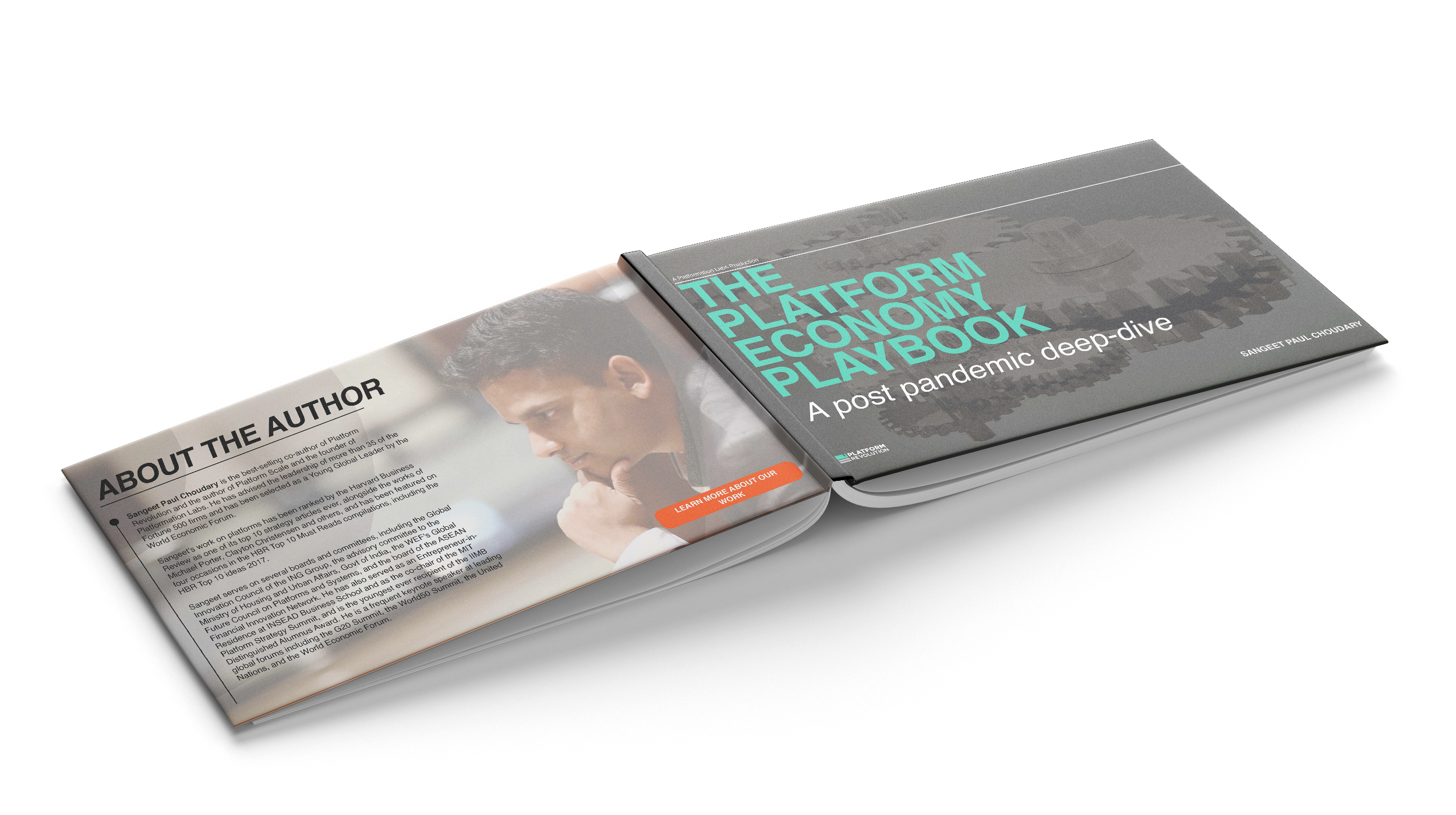AI won’t eat your job, but it will eat your salary
On rebundling jobs and skill premiums
The debate on the effect of AI on jobs is repeatedly distracted by the question of replacement through automation, when the factor that really drives our engagement with our careers is the ability to own skills which grant us a skill premium.
Feel Free to Share
Download
Our Insights Pack!
- Get more insights into how companies apply platform strategies
- Get early access to implementation criteria
- Get the latest on macro trends and practical frameworks
AI Agents
To define AI agents, I’ll borrow the definition proposed by one of the readers of this newsletter – Dharmesh Shah – at his new blog Agent.AI.
Software that uses artificial intelligence to pursue a specified goal. It accomplishes this by decomposing the goal into actionable tasks, monitoring its progress, and engaging with digital resources and other agents as necessary. Agents are goal-seeking, and that’s what makes them different. While most technology aims at task substitution, agents go beyond tasks to seek goals.
Every agent operates with at least one goal (and possibly more than one).
In order to accomplish this goal, an agent needs to do three things:
- SCAN: Scan and observe the current state of the environment
- PLAN: Set up a plan, deconstruct the gaol into constituent tasks, which collectively transform the environment towards achievement of the goal
- ACT: Act out the plan leveraging other agents and digital resources, constantly monitoring its progress by restarting from step 1 to adjust the plan in response to its changing environment.
AI agents are in stark contrast to traditional deterministic software, where programmers do the SCAN and PLAN and then encode instructions into code for performing the ACT.
In summary, AI agents are cool. They get the job done.
And they look something like this:

Or not.
Goal-seeking as the locus of rebundling tasks
What we’re driving at is this:
Goal-seeking has thus far been a critical reason for keeping humans in the loop even when technology substitutes individual tasks.
A human is still involved in combining machine-performed tasks with the tasks they themselves perform (human-performed tasks) tasks towards the performance of a goal.
AI agents are unique (unlike other technology) in that they can leverage goal-seeking behavior to rebundle tasks and completely replace the human-performance in the job.
Here’s how this plays out:
First, an AI agent deconstructs a goal into its constituent tasks. It analyzes these tasks to understand their nature, complexity, and interdependencies and categorizes and sequences them towards contribution to the goal.
Once tasks are categorized and aligned with goals, the agent allocates resources (including calling on other agents) towards execution.
Agents can also continuously adapt and adjust task bundling strategies based on changing environmental information. They may re-evaluate priorities, re-sequence tasks, or change the other agents they are working with. In a perfectly competitive market of agents, an AI agent should have sufficient information to map the most appropriate agent to the task.
Owing to the goal-seeking behavior explained above, AI agents re-bundle tasks towards specific goals, impacting how work is organized and executed. This restructuring occurs at both individual and organizational levels, ultimately reshaping job roles and team dynamics.
Goal-accomplishment is the real product of AI.
How AI agents erode the skill premium
Agents may not eat your job, but they may eat your human-in-the-loop advantage.
In previous technological waves, humans often lost the skill premium associated with the task being augmented but they would retain the associated capabilities of environment scanning, planning, and resource allocation across human and technology resources.
Agents take away this managerial advantage of a the human-in-the-loop who primarily performs environment scanning, planning, and resource allocation.
Yes, it’s early days yet for agents but as models develop and as more agents get created, a perfectly competitive market of agents could replace multiple levels of managerial advantages. Low-end managerial work gets replaced initially. But over time, complex managerial work may also struggle to command a premium.
Of course, in rapidly evolving environments, resource allocation requires original thought. And some (few) humans may effectively outsmart AI there. But for the vast majority, the skill premium of human-in-the-loop gets progressively eroded as all these three effects laid out above play out.
Centralized market-making accelerates erosion
Finally, as workers get more commoditized through AI, the work lends itself to a greater deal of centralized market-making.
Centralized market-making further accelerates the erosion of the skill premium.
To understand how this works out, let’s look at a market where this has played out at scale.
As I note in Slow-burn AI:
In the market of local transportation, the advent of Uber changed the mechanics of ‘job discovery’, or in this case the mechanics of finding your next ride. Cabbies could either be assigned jobs by the algorithm and compete with all other 5-star-rated, maps-augmented amateur drivers or they could stay out of the system and miss out on the demand coming in through Uber. Cabbies lost their negotiation power leading to a variety of effects – they had to accept rides without knowing the destination, they had to adhere to acceptance and cancellation rate metrics. They had lost not only the ability to set the price but also the agency to accept or reject work opportunities based on whether it made commercial sense.
Centralized market-making erodes the skill premium by pitting increasingly substitutable workers against each other and driving the clearing price of job allocation to a bare minimum.
Essentially, centralized markets combined with the three factors above that erode skill premium convert the job market into a commodities market seeking the lowest possible market-clearing price.
The more technology commoditizes your skills, the faster your skill premium is eroded through centralized market-making.
This leads to a cycle of continuous commoditization:
Skill absorption into AI constantly drives greater commoditization.
An ever-improving AI model, trained by a larger base of users, drives continuous commoditization of the skill.
Successful augmentation expands the training data set not just through driving greater usage among workers but by fundamentally expanding the overall base of workers training the models. A feedback loop is set in motion here where greater productization and democratization of the knowledge starts accelerating commoditization.
A combination of these effects eventually erodes the skill premium associated with the job.
Read the full article here:
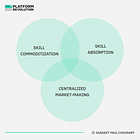
Slow-burn AI: When augmentation, not automation, is the real threat
The commoditized human-in-the-loop
Does AI eat your job?
It doesn’t really matter. That’s really the wrong question to be obsessing over.
What’s far more important is to determine whether AI gets to eat your skill premium.
Yes, there are human advantages – original thought, soulful expression etc – which, when combined with an effective use of AI, can help command a higher skill premium.
But for the vast majority of jobs, where humans-in-the-loop largely rely on (1) skill specialization, (2) learning advantages, and (3) managerial capabilities, AI will chip away at the skill premium that those jobs command.
Eventually, the factor that really drives our engagement with our careers is the ability to own skills which grant us a skill premium.
The effects of AI on basic wage loss through AI-driven job displacement can be countered through policy (e.g. by setting up an AI tax on specific activities).
But the effects of AI on the skill premium are far more difficult to address.
And yet, we remain obsessed with the human-in-the-loop argument.
State of the Platform Revolution
The State of the Platform Revolution report covers the key themes in the platform economy in the aftermath of the Covid-19 pandemic.
This annual report, based on Sangeet’s international best-selling book Platform Revolution, highlights the key themes shaping the future of value creation and power structures in the platform economy.
Themes covered in this report have been presented at multiple Fortune 500 board meetings, C-level conclaves, international summits, and policy roundtables.
Subscribe to Our Newsletter




